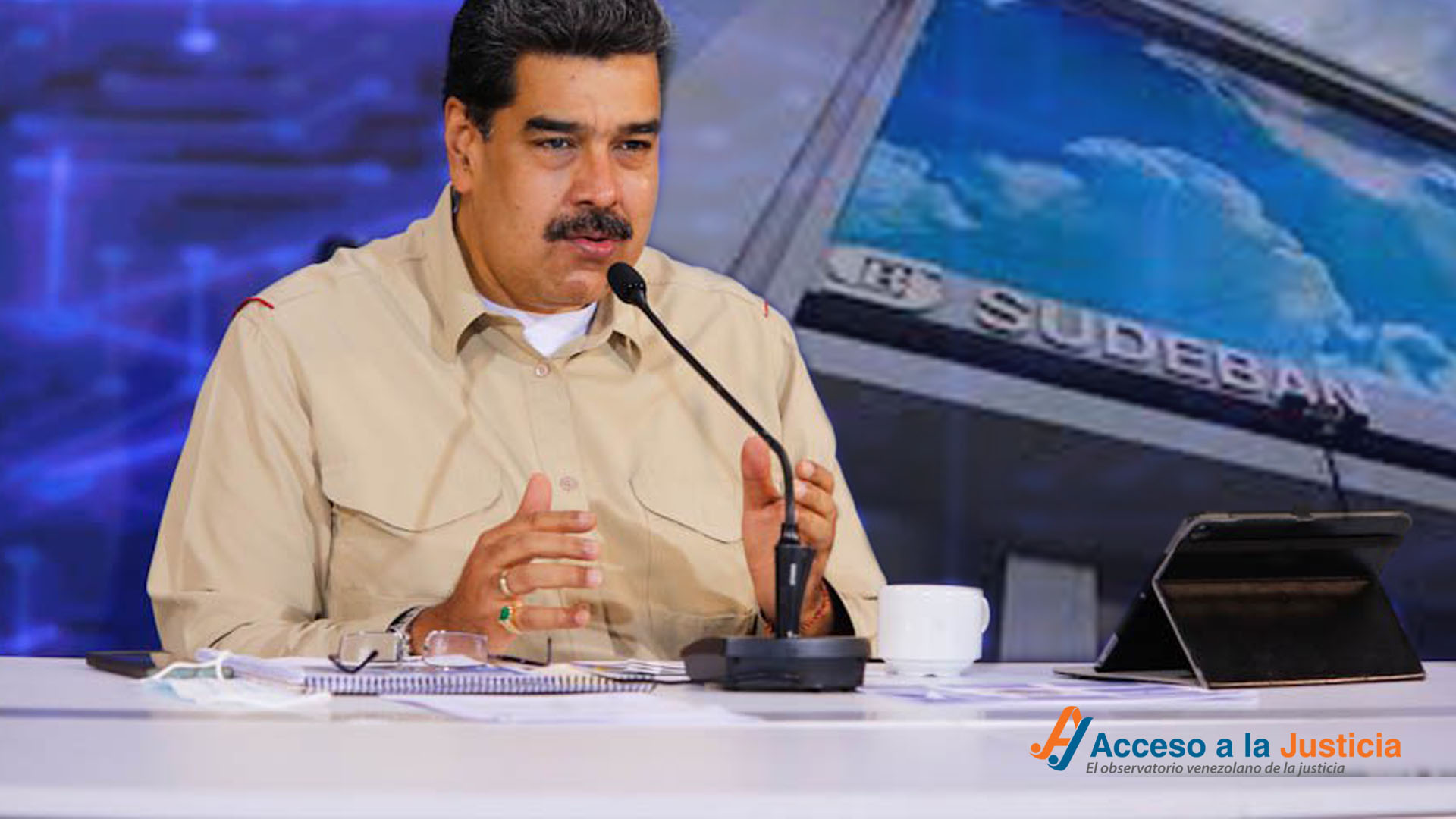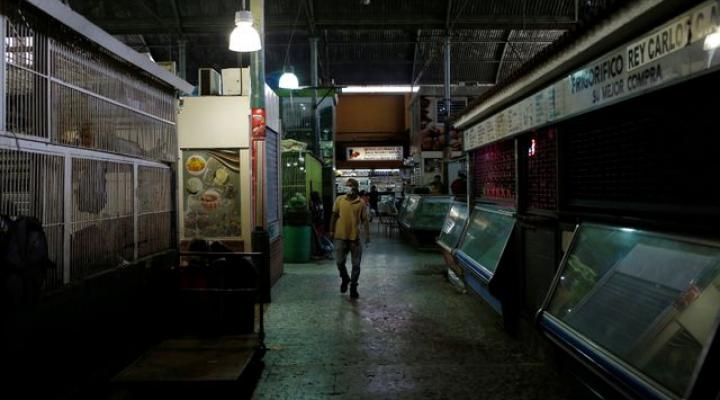The prospects for Venezuela in 2024 were discussed during a recent forum with local political experts, who affirmed that the most feasible scenario is an electoral victory of the Chavista ruling faction under the strategy of “divide and conquer”
Venezuelan politics navigate an asymmetric game where the Chavista ruling fraction remains comfortably in power and without a real need to reach an agreement that jeopardizes its perpetuation. This is how political scientist Benigno Alarcón perceives the current moment, in contrast to an opposition that will be limited to “keep trying” if it fails to bring about political change.
The topic was addressed by Alarcón during a forum that analyzed the current state of affairs in Venezuela and the prospect of what might happen in the first half of next year. The event was hosted by the Center for Political and Government Studies of the Andrés Bello Catholic University.
Chavismo in sharp decline
Mr. Alarcón, director of the center, explained that the Maduro faction remains in control and displaces other power factions within the ruling party.
I do not see any possibility of seeing this faction displaced. Whenever a rumor spreads about a different candidate other than Nicolás Maduro running for president, it may be a rumor deliberately spread by a sector that would benefit from it,” he explained.
Regarding Chavismo’s incentives to “tolerate political change,” the political scientist explained that they remain low while costs remain high, in part due to the number of processes opened against the authorities at the International Criminal Court.
He explained that as long as the cost of tolerance for change remains high, the realization of political change in the country will remain unlikely.
“The cost of holding on to power by force has decreased due to the absence of protests, but this may change with the process at the ICC,” he said.
Mr. Alarcón also brought attention to the distancing between Madurismo and grassroots Chavismo, as well as the weakening of electoral clientelism -the foundation of the ruling party to remain in power through apparent democratic elections. This may help to explain the December 3 referendum on the Venezuela-Guyana territorial controversy.
“This is done to calibrate the electoral machine, evaluate the current conditions, see who is not doing their job, and make the changes that may be needed,” he explained.

A renewed leadership in the opposition
Regarding the opposition, Alarcón said that the October 22 primary election brought about two significant changes from the situation in previous months. The first is a new leadership represented by María Corina Machado, who gained legitimacy with the process; and the second change is the weakening of the traditional opposition.
Contrary to the expectations, there was no atomization of the opposition, and the traditional leaders of the opposition -mainly the four biggest parties- have accepted the new leadership, he commented.
The political expert also highlighted the generalized rejection by the population of what he described as the co-opted or moderate opposition, while adding that in the coming months, no one is going to remember the Alianza Democratica.”
Finally, Alarcon spoke of the empowerment of citizens and the new electoral polarization between Nicolás Maduro and María Corina Machado, who was recognized as the leader of the opposition and will continue to be so, even if she is not allowed to run against Maduro. He then described how the opposition closed the cycle of the Democratic Unity Roundtable and entered a new and opposed one.

Internal and external pressure
According to Alarcón, the Chavista movement is in the process of extinction and the Government can only hold on to power through force after the loss of its political capital and the deterioration of electoral clientelism. Under this circumstance, the group is heavily reliant on State and parastatal actors that could support it in the event of an escalation of the conflict; However, the cost of repression is now higher than in 2017, particularly due to the process at the ICC.
The expert assured that the Government has a “menu” of strategic alternatives that range from the most desirable, a “divide and conquer” scenario that is becoming increasingly unfeasible, to a non-competitive election with Machado if she remains banned from holding public office.
The Government’s tolerance for the holding of the opposition primary elections implies that the calculations of the costs and benefits of intervening were unfavorable. What made this calculation unfavorable? We don’t know. The key is to understand what can be done to extend this effect in the face of the continuation of the Barbados negotiation, whose purpose is a competitive presidential election in 2024 rather than the recent opposition primary election,” he detailed.
Mr. Alarcón believes that this can only be possible with “a combination of external and internal pressure that increases Chavismo’s uncertainty about the possibility of holding on to power by force; while maintaining open negotiation channels capable of reducing the consequences of a political change for the ruling faction.”

Scenarios for 2024
In his analysis of recent and current events, Alarcón assured that a “divide and conquer” scenario seems the most likely for the upcoming year.
Under this scenario, the lack of a political and electoral agreement between Chavismo and the opposition led to a primary election without the support of the National Electoral Council and the emergence of María Corina Machado as the unitary candidate of the opposition. However, she might remain banned from holding public office and abstention would reign in the 2024 presidential elections in the absence of a substitute candidate who enjoys people’s support.
This would lead to a Chavista victory and a new failed attempt at a transition, which could culminate in the recognition of the Maduro government and a policy of appeasement.
According to Alarcon, the second most likely scenario is a stunning election, which describes a process of democratization in an authoritarian regime through moderately free elections.
Under this circumstance, Machado’s ban would be maintained, although the opposition could unify around a substitute candidate fully positioned in the public opinion. This candidate would win in the 2024 presidential election, although this does not necessarily mean that Chavismo would accept the results and could rather lead to the escalation of the conflict over the recognition of the results.

A negotiated transition is the third scenario described by Alarcón. This would rise from the political traction gained by Machado and her leadership of the opposition, combined with an electoral victory and an eventual amnesty and transition supervised by some elements of Chavismo.
Although the latter could be considered the “ideal” scenario, Alarcón described it as the least likely, according to his current analysis. He added that this does not mean that changes in the future could not result in this scenario becoming reality.
At the closing of his intervention, Alarcón emphasized that the political effort of the opposition will focus on the fight to achieve the lifting of María Corina Machado’s ban to hold office while the ruling Chavismo will seek to keep her banned at the lowest possible cost for Chavismo. This will be the focal point for the first half of next year.
Translated by Jose Rafael Medina




